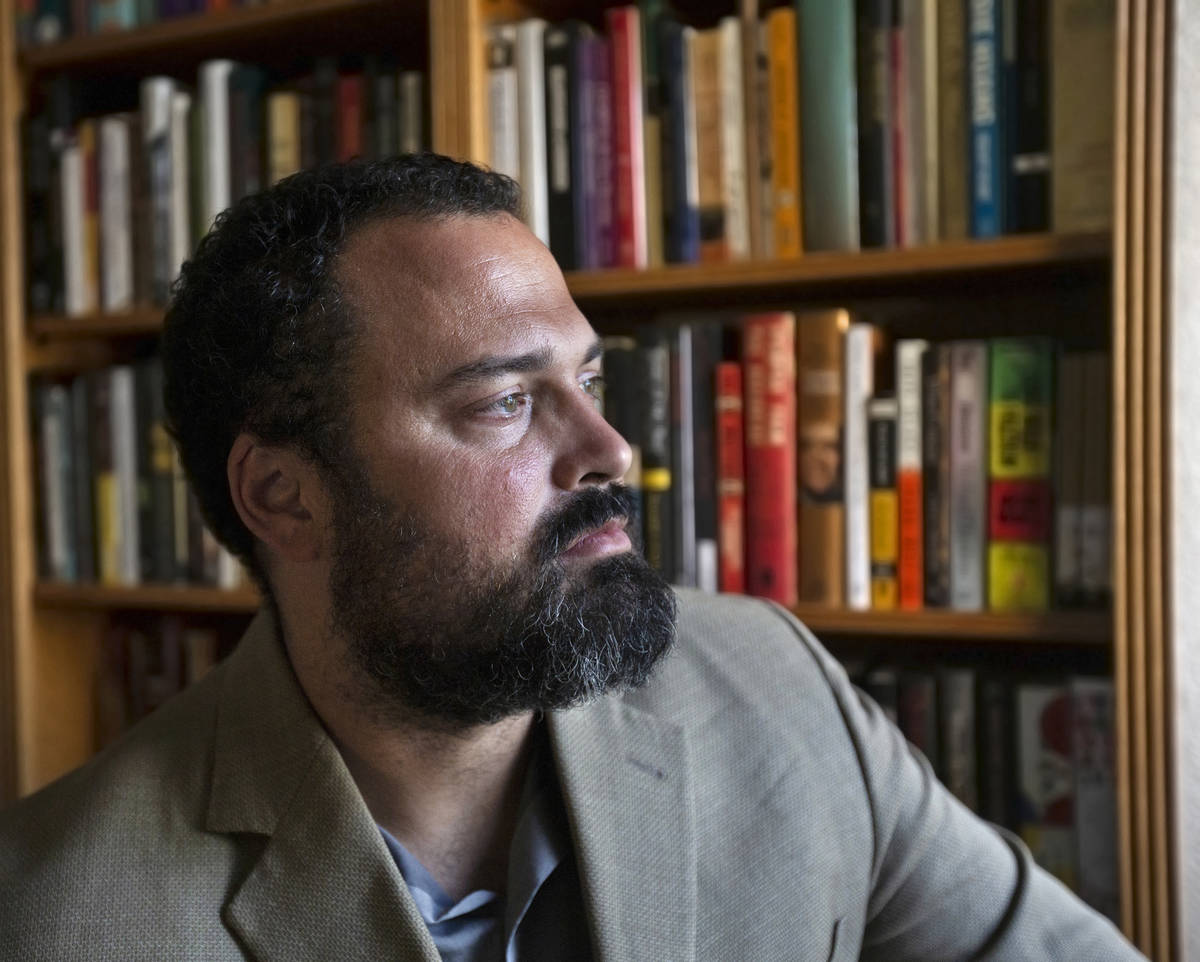Juneteenth is time of celebration, reminder of fight for freedom
If there ever was a year to celebrate Juneteenth, 2020 — a year in which marchers worldwide have taken to the streets to protest racial inequality and police violence against African Americans — would be it.
However, one long-running Las Vegas celebration of Juneteenth, which commemorates the end of slavery in the United States, this year has fallen victim to the coronavirus pandemic. But Juneteenth 2020 still is a relevant time to recognize how far things have come and underscore the work that still needs to be done.
Juneteenth refers to June 19, 1865, when — more than two years after the Emancipation Proclamation was signed — African American slaves in Texas learned that they were free. While its history is tied to Texas, Juneteenth came to represent “a universality of black experience” set against the theme of celebrating freedom, said Tyler D. Parry, an assistant professor of African American and African Diaspora Studies at UNLV.
“Juneteenth in Texas to some degree is very specific to that particular state, but what we see is all African Americans embrace it because if one black person isn’t free … it is as if none of us are free,” Parry says.
“There are a number of Juneteenths by state, by region, by county. But what we see is African Americans marshaling around June 19 (1865) as when all black people are freed in the United States.”
Celebration canceled
The Las Vegas Juneteenth Festival was scheduled to celebrate its 20th anniversary this weekend. However, Diane Pollard, festival organizer and founder of Rainbow Dreams Educational Foundation, said the event was canceled out of concern for guests’ health and safety.
Pollard said plans are to redo the 20th anniversary next year. The festival is a fundraiser for Rainbow Dreams Academy charter school, and last year’s celebration at Kianga Isoke Palacio Park drew almost 3,000 guests for music and dancing and scholarship presentations.
Juneteenth is “like Fourth of July for black people,” Pollard says. “It’s a celebration of freedom, as well as a reminder that “African American people helped build this country.”
Juneteenth this year occurs against a backdrop of nationwide Black Lives Matter protests and a heightened focus on racial inequality. Claytee White suspects that would have given this year’s celebration added resonance.
“We know that, even today, we are still fighting for those same freedoms we were supposed to have been granted at that time,” says White, director of the Oral History Research Center at UNLV Libraries.
White grew up in North Carolina as the daughter of sharecroppers, but “we didn’t know what Juneteenth was,” she says. “I did not hear of it until the ’70s. I was living in Los Angeles (and) there were a lot of people around me in Los Angeles from Texas. They knew about Juneteenth and celebrated it.”
Continuing lessons
Juneteenth commemorates the end of slavery in the United States. It doesn’t commemorate the end of discrimination and racism.
“This is one thing I really have to drill into my classes, especially for students who, this might be their first African American history or first African American studies class: Post-June 19, 1865, is just one moment,” Parry says.
The hope that came with the abolition of slavery “faded as soon as Reconstruction governments were toppled over by white supremacist (governments),” says Parry, who recalls sociologist and author W.E.B. Du Bois’ observation that “the slave went free; stood a brief moment in the sun, then moved back again toward slavery.”
“What we see in African American history is broken promises. Every step forward is a step or two back,” Parry says.
As a unifying holiday, “this would be the year (Juneteenth is) probably needed the most, even from Americans more broadly, as more people pay attention to what’s going on and listening and rising up and trying to change the status quo,” Parry says.
At the same time, he adds, “any holiday that deals strictly with black Americans’ experience is one of highs and lows. You want to celebrate the moment when freedom, or at least the formal abolition of slavery, came. That does mean something within the legacy of African Americans in this country.
“But at the same time, every holiday is approached with trepidation. You cannot assume, as an example, because slavery is abolished, it doesn’t mean something else can’t come along and take its place.”
Recognition that “freedom did come,” Parry says, also means recognizing that “freedom must continue to be fought for.”
Contact John Przybys at jprzybys @reviewjournal.com. Follow @JJPrzybys on Twitter.
Nevada's role
Nevada plays a part — even if only a parenthetical one — in the creation of Juneteenth.
In fact, says Michael Green, an associate history professor at UNLV, "Nevada is part of what leads to the celebration."
Nevada became a state on Oct. 31, 1864, with what seems even today to have been alarming speed, and that was no accident. President Abraham Lincoln "and his party wanted our votes, not only for his re-election but also for the 13th Amendment," Green says.
By admitting Nevada into the Union before Election Day, Lincoln potentially would have three additional electoral votes for his re-election. But, Green says, "Lincoln did not get Nevada's three electoral votes. He got two. The third elector got trapped in a blizzard in Esmeralda County and didn't make it to Carson City. But it turned out he was not necessary."
Lincoln also figured that "adding Nevada meant one more 'yes' vote to the abolition of slavery."
The U.S. Senate had passed the 13th Amendment. But, Green says, "it takes two-thirds to amend the Constitution. If they had been short three votes, it doesn't pass the House."
Nevada Congressman Henry Worthington voted for the amendment, helping ensure its passage.
"Juneteenth does not commemorate the 13th Amendment. Juneteenth involves what happened in Texas," Green says. "But that amendment was necessary to ending slavery, which Juneteenth certainly celebrates."





























